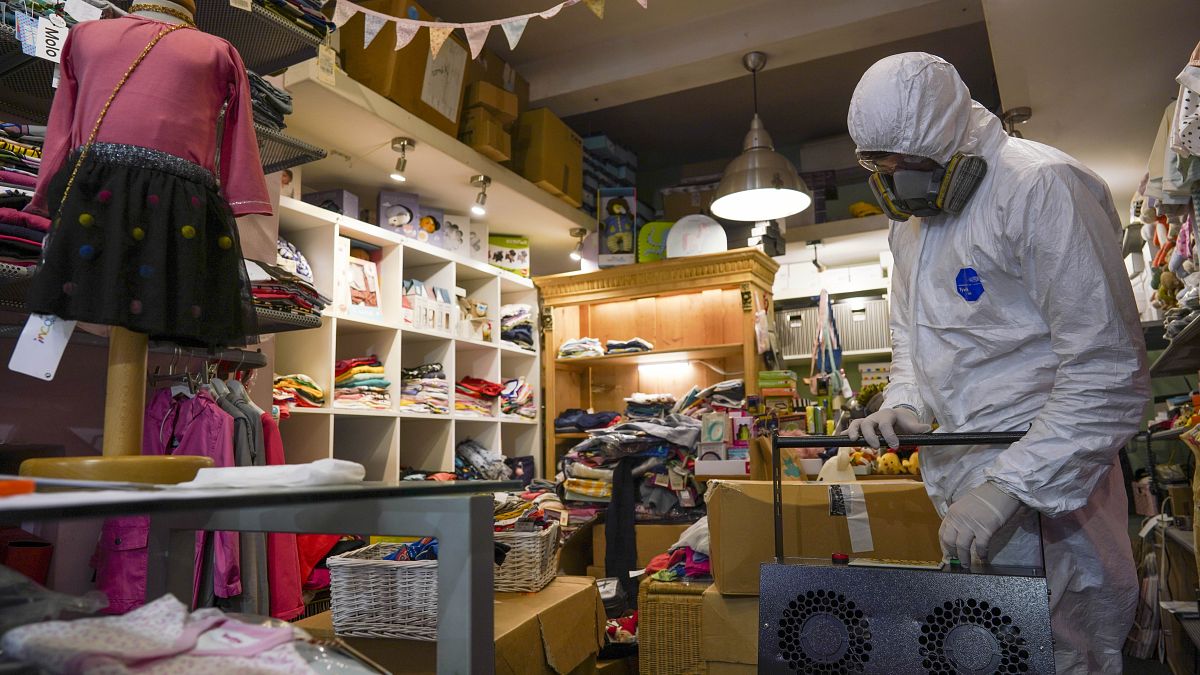Lockdowns are easing in parts of Europe but getting longer in others, and there’s fierce debate about when countries should lift them.
As lockdowns start to ease in some parts of Europe, debate is intensifying about whether pressure to ease restrictions risks a deadly resurgence of COVID-19.
Austria, Denmark and parts of Italy saw a loosening of lockdown measures this week, with many non-essential businesses allowed to reopen. Spain also allowed some construction and factory workers to return to their jobs.
At the same time France and Belgium extended strict confinement measures, complicating the EU's attempt to outline a coordinated exit strategy across the continent.
Each country is attempting to balance restrictions put in place to protect public health, with the need to ease shutdowns to revive the economy.
It's an unenviable calculation. Unlocking too fast could result in a deadly second wave of COVID-19, while keeping businesses closed worsens an already dire economic picture.
Watch: Are lockdowns being lifted too soon?
The International Monetary Fund predicts the world is set for the biggest slump since the Great Depression, while the Eurozone is estimated to shrink by 10 per cent this year.
The unintended and unavoidable consequences of the lockdowns extend much further.
In a Facebook post, the mayor of Barcelona called on the Spanish government to "free our children", who are not allowed outside for any reason under the restrictions.
"I write as mayor and as a mother...We've been with two young children at home for over a month without leaving a single day, which they don't understand", wrote Ada Colau Ballano.
"I hear educational authorities are very concerned. I agree, but I, like many parents, am most concerned about the psychological and emotional health of our children".
But many scientists are strongly resisting calls for the rules to be relaxed in the immediate short term, warning that the virus has not been beaten.
"I think that it's really worrying that people are already discussing that it's time to come out of these lockdowns...what we have to remember is that there is no cheap or easy way out of this," molecular epidemiologist Dr Emma Hodcroft told Culture Clash.
"If we lift lockdowns tomorrow, the economy is not going to rebound. People are going to die and we're going to continue to have a bad economy because life is not going to continue as normal when the hospitals are full.
"What we need to work towards is a middle ground here... and that's where things like test, trace and isolate could play a real role."
It is this approach, taken in countries like Taiwan, that the World Health Organization says will be crucial in containing the virus as the shutdowns are eased.
It involves widespread testing of possible cases and tracing who they might have come into contact with, then isolating these people to prevent further transmission.
So when should this transition begin?
"In general we need to see the case counts dropping before we can start considering lifting these lockdown measures," Dr Hodcroft said.
"We really need to know that we have this in hand enough, that we're not just on a plateau... we have to wait for a decline".
Even as the shutdowns are eased its clear that we won't be returning to 'normal' any time soon, with predictions that social distancing measures could be in place well into 2022.
